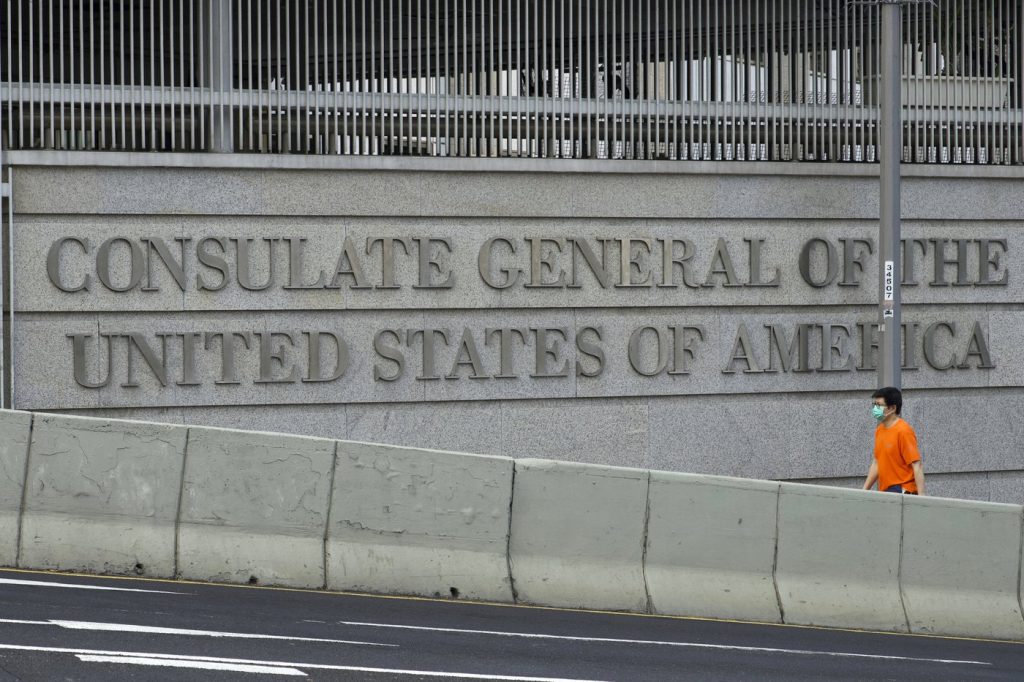HONG KONG (AP) — The U.S. consulate in Hong Kong has issued a strong condemnation against the local government for what it describes as the repression of U.S. Independence Day celebrations. This statement comes in light of reports indicating that the city's education authorities advised teachers and students not to participate in events organized by American diplomats to commemorate the holiday.
The consulate accused the Hong Kong government of interfering with events hosted by the U.S. Consulate General, highlighting that U.S. embassies and consulates around the world celebrate Independence Day annually with various festivities, including receptions. In its communication to The Associated Press, the consulate stated, “We condemn the Hong Kong government’s repression of U.S. Independence Day celebrations. Its attempts to characterize these activities as ‘unlawful’ only further reveals its insecurity and fear of freedom.”
This criticism from the consulate was prompted by a report from a Facebook page named "Edu Lancet," which claimed that multiple schools received “friendly reminders” from the education authorities. These reminders urged teachers to avoid casually attending the consulate's Independence Day events and warned them about the potential implications of violating the national security law. Additionally, the reminders encouraged schools to discourage student participation in the celebrations.
The claims made by the Facebook page remain unverified by independent sources. Nevertheless, local media, including the South China Morning Post, corroborated the reports, noting that education authorities have indeed cautioned schools to remain vigilant against any initiatives promoting U.S. Independence Day celebrations in educational settings.
The Hong Kong Secretary for Security, Chris Tang, has previously criticized Hans Yeung, the founder of the Edu Lancet page, for exploiting opportunities to stir division within society during media interviews. This ongoing tension reflects the broader context in which Beijing enacted a national security law in 2020, following significant anti-government protests in 2019. The law was framed as necessary for restoring stability in the region but has led to the prosecution and imprisonment of a considerable number of prominent activists, while many others have sought refuge abroad.
Under the national security law, the landscape in Hong Kong has drastically changed, instilling fears among many residents, particularly among middle-class families and young professionals, leading to a notable trend of emigration as people seek greater freedoms outside the city.
In summary, the interaction between the U.S. consulate and the Hong Kong government illustrates the heightened sensitivities surrounding freedom of expression and political activities within the context of the national security law. The City’s education authorities' advisory against participation in Independence Day events further reflects these constraints, signaling a growing tension between local governance and international diplomatic practices.











